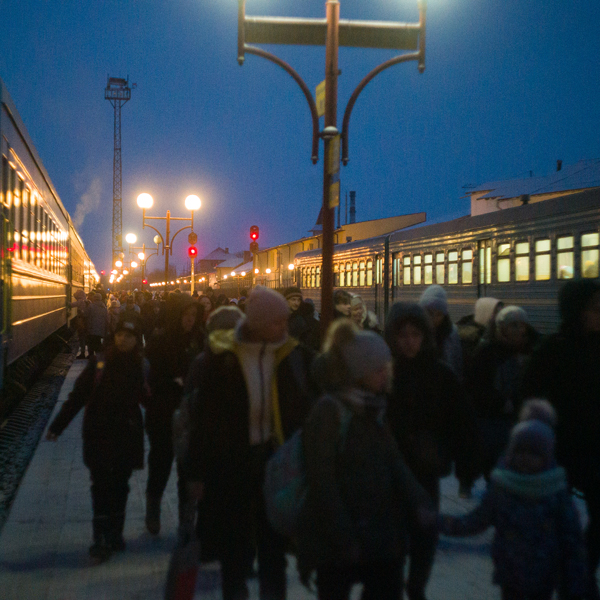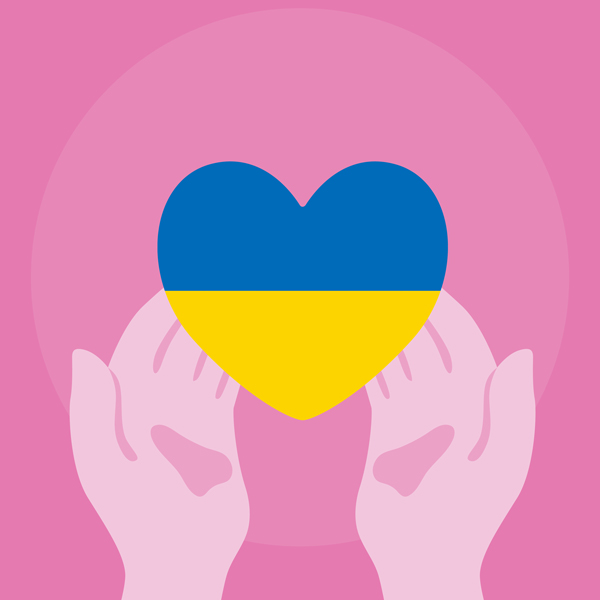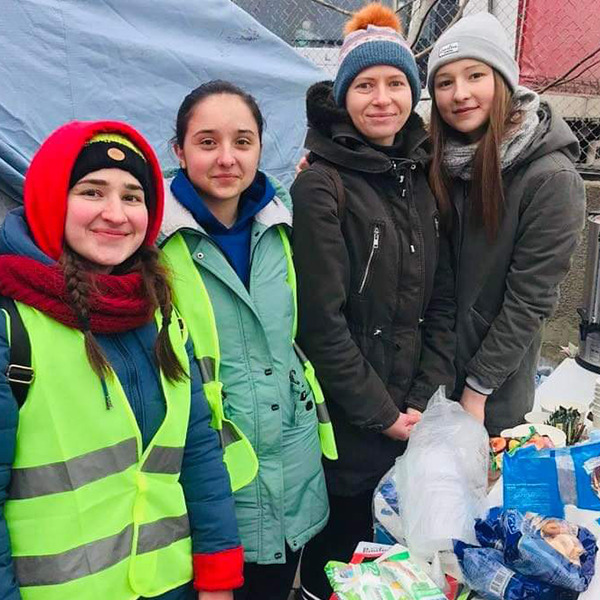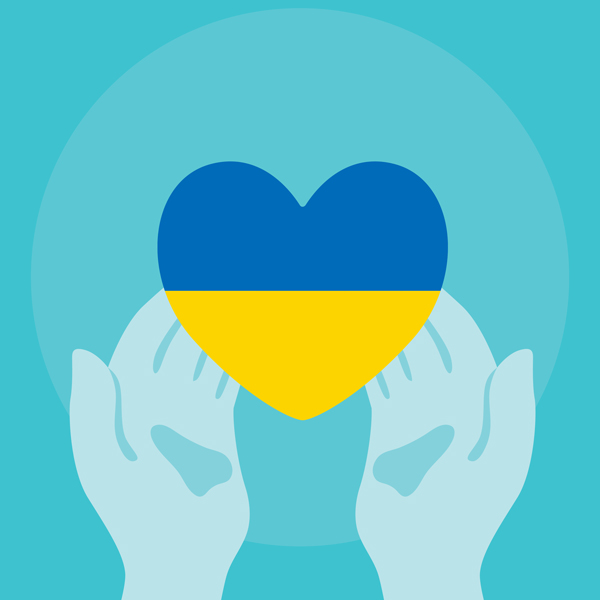GFC’s Senior Director of Global Grantmaking, Joseph Bednarek, was recently interviewed on The Response podcast’s episode, “Wartime Mutual Aid in Ukraine,” which highlighted community-led responses to the war in Ukraine. In this podcast, hosted by Tom Llewellyn, Joseph is joined by Yaroslav Minkin (Chairman of the Board of GFC partner Youth Organization STAN in Ukraine), Romeo Kokriatski (Managing Editor at the New Voice of Ukraine and Co-host of the podcast Ukraine Without Hype), Yosh (Head of GFC partner Feminist Workshop in Ukraine), and Ruslan Stanga (Senior Advisor at GFC partner the Institute for Rural Initiatives in Moldova).
The episode offers powerful insight into the war in Ukraine and highlights examples of resistance and solidarity by established grassroots organizations and their local communities, who have pivoted from their original causes to provide on-the-ground help to people affected by the conflict.
As Joseph explains in the podcast, GFC was well-positioned to provide grants directly to grassroots organizations in Ukraine because of GFC’s longstanding relationships with these groups. Shortly after Russia invaded Ukraine in February, GFC contacted its partners to request grant applications for funds that could be transferred quickly and put to immediate use. This type of rapid, flexible funding is critical in a crisis situation because it enables partner organizations to quickly use funds to provide emergency support to children and their families.
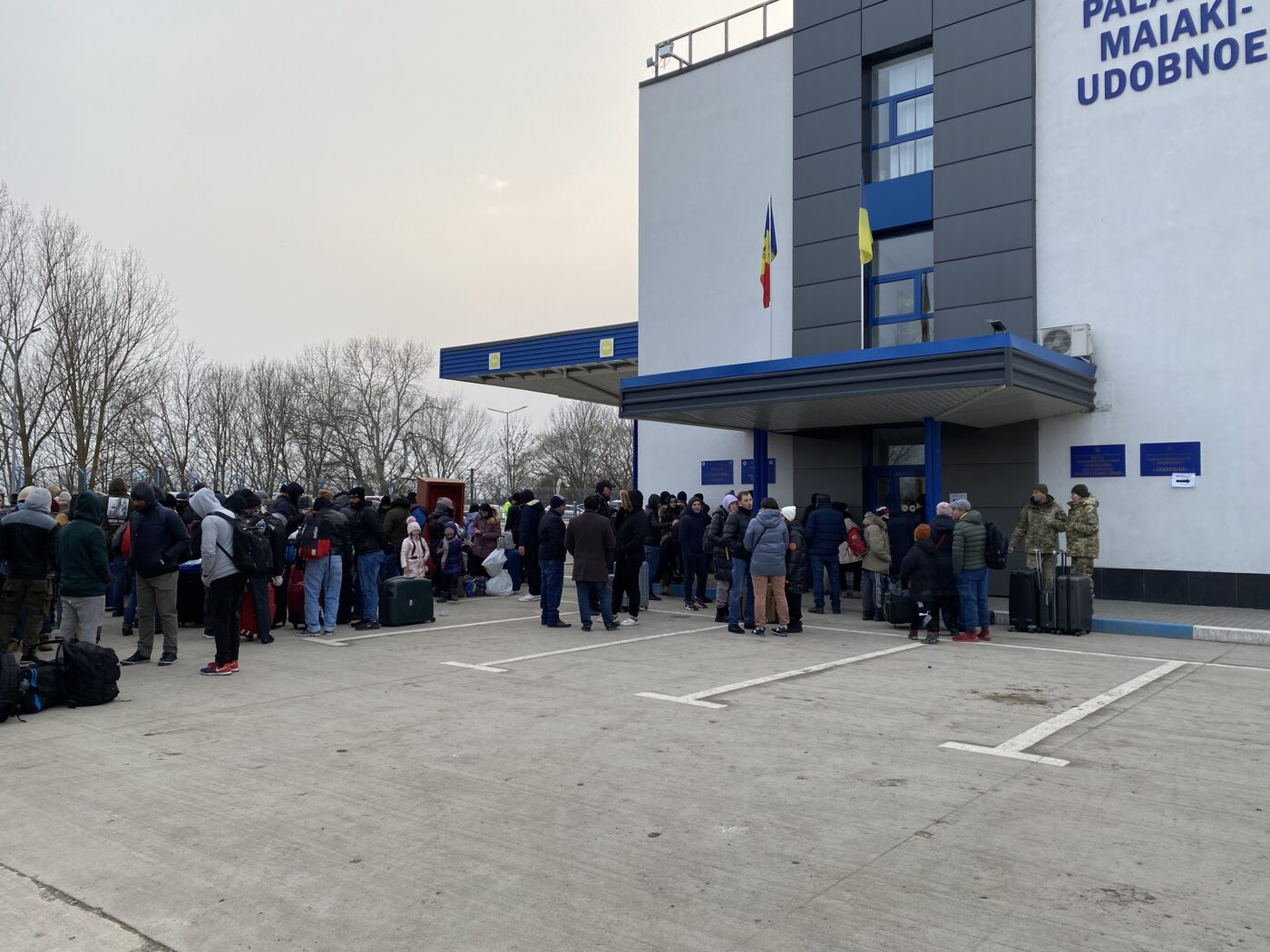
“You can imagine in an emergency like this, sometimes people just need food, water, shelter, clothing, medicine,” Joseph explains. “And we’re not there to buy those supplies for them. We’re there to provide the resources to send [our partners] immediate aid in order for them to acquire and get what they need on the ground, because they’re the ones that are best suited and best positioned to find that need and know who needs it in the community because they live and work there.”
GFC’s support was crucial for Youth Organization STAN (STAN). When the war began, STAN Board Chair Yaroslav moved to the relative safety of the Carpathian region in western Ukraine. From there, the organization re-established itself and opened shelters for internally displaced people, Yaroslav explains in the podcast. In addition to providing for essential physical needs like food and shelter, STAN has recognized the importance of flattening hierarchies by empowering the people that come to its shelters to contribute to decision-making processes and to organizing the work in the shelters. STAN has also fostered a community-driven response that will achieve more than the organization could alone.
Feminist Workshop, based in the western Ukrainian city of Lviv, creates spaces for the development of the feminist community in its city and in other regions. Like STAN, Feminist Workshop was able to meet the needs of its community when the war started because the organization was already deeply embedded in the local community. Feminist Workshop initially shared apartments and offices with internally displaced people, then later rented out apartments to women activists as well as to women refugees and their children. The organization is now providing childcare and psychological support, Yosh, the Head of Feminist Workshop, explains in the podcast, as well as facilitating meetings for teenage girls and non-binary people.
The Institute for Rural Initiatives (iRi) facilitates development in marginalized and disadvantaged communities in Moldova, which neighbors Ukraine. In the first days of the war, many Ukrainian refugees crossed the border into Moldova. iRi Senior Advisor Ruslan explains in the podcast that Moldova is not experienced in providing for refugees, so iRi swiftly moved to help the refugees, including by traveling to the borders to help direct them to buses. Other Moldovans also mobilized to help the people arriving from Ukraine.
“An awakening happened in Moldova,” Ruslan explains. “90% of the accommodated Ukrainians were accommodated in individual houses, or in the small hotels […] something happened here in the minds of Moldovan people.”
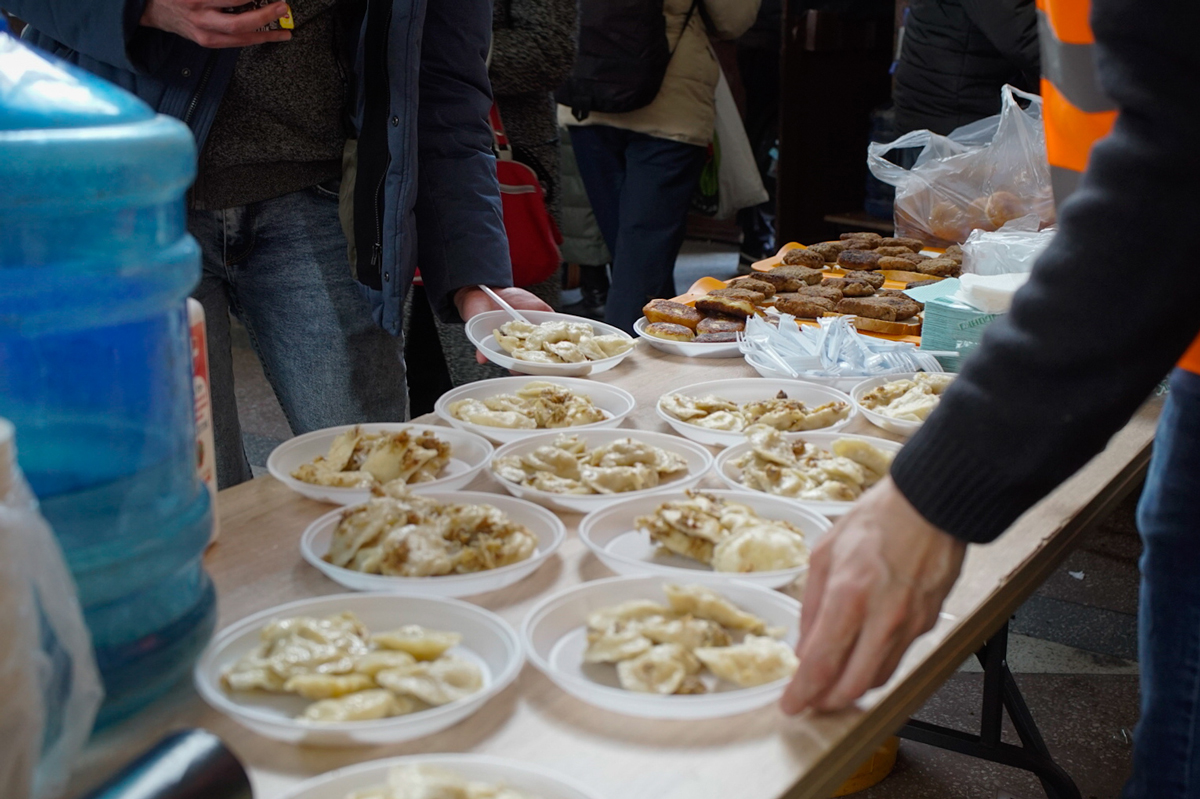
The stories GFC’s partners shared in the podcast highlight the power of communities and local grassroots organizations coming together to respond to a crisis.
As Joseph says, “They’ve got a community. They feel connected […] the stories coming out are communities really pulling together.”
GFC’s response demonstrates that, given the long-term need for help and the ability of local groups to understand and recognize the prevalent needs, as well as to mobilize the local community, resourcing grassroots organizations in Ukraine is a highly effective way for funders to provide assistance.
STAN, Feminist Workshop, and iRi have received grants from GFC’s Ukraine Emergency Response Fund. Since the start of the war in Ukraine, GFC has approved 62 emergency grants totalling more than $1.5 million to support 50 community-based organizations that are helping children and families under attack and refugees fleeing the country.
To hear the full stories behind the work our partners are doing and the impact they are having, listen to the full podcast.
Donate now to help local organizations provide emergency support to children in Ukraine.
Header photo: Internally displaced people at the train station in Ivano-Frankivsk, Ukraine, where STAN has provided food and other assistance. © Maxim Solodjuk
